RTÉ's Crime correspondent Paul Reynolds examines why senior Garda officers are not applying for the post of Deputy Garda Commissioner in charge of all criminal, security, intelligence and terrorist operations
The deadline for applying for the second most senior position in An Garda Síochána was supposed to be last Thursday.
However, shortly before the 3pm closing for applications for the post of Deputy Garda Commissioner, it was extended for another three weeks.
No explanation for the change was given but senior gardaí say it’s clear this was done because the quality of the applicants so far has not been up to the standard required for such a key role in the security apparatus of the state.
More time is needed to find the right person.
The Deputy Garda Commissioner is the second highest ranked officer in An Garda Síochána, a job which entails performing the duties of the Commissioner in his absence. The previous eleven Garda Commissioners before Drew Harris dating back to Patrick Mc Laughlin in 1978, were all Deputy Commissioners before they were appointed.
However, if the Government thought the competition would have been oversubscribed for what is described as "a rewarding and challenging role, in a unique environment with the opportunity to be at the forefront of a transformation of policing in Ireland," they have been sorely disappointed.
The reality is that some of the most qualified people for the position in this country haven’t even applied.
No current serving front line experienced senior Garda officer wants the job. None of the current eight Assistant Garda Commissioners want it, neither do the vast majority of Chief Superintendents.
One or two Chief Superintendents out of a total of 47 may have applied, but to be successful they would have to jump two ranks, an unprecedented promotion for such a crucial national security position.
The job no one wants
The Garda Commissioner Drew Harris is from Belfast and is five years in the job.
He has two years left on his contract. The Deputy Garda Commissioner Shawna Coxon is from Canada and was appointed two years ago. The other Deputy Commissioner position falls vacant on 3 December.
If another officer from an outside police service were to be appointed it would mean none of the top three Garda officers will ever have served in any other role in An Garda Síochána.
The current Deputy Garda Commissioner Anne Marie Mc Mahon is due to retire in six weeks' time.
She has overseen ‘Operations’ for the past seven years. It is one of the most important, if not the most important role in the force because it has responsibility for front-line policing. This includes organised, subversive and serious crime including domestic and international terrorism.
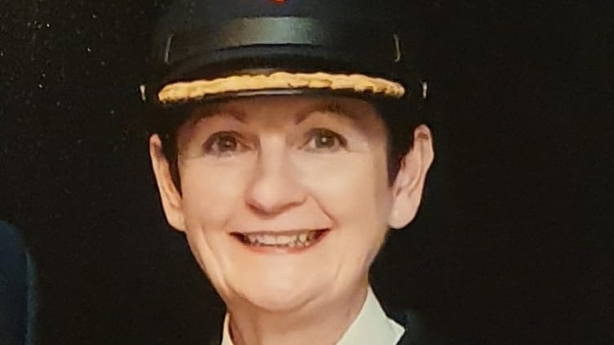
Everything from the Kinahan Organised Crime Group to ISIS, from international cybercrime to drugs, guns and people trafficking and the threats they pose to the safety of the citizens and the security of the state are covered by the role.
All of the Garda’s investigative specialists, national and regional supervisors and units, report to the Deputy Commissioner Operations.
The current most senior Garda officers, the eight assistant commissioners have worked their way up in all these areas and now supervise that work.
The head of Organised and Serious Crime Justin Kelly headed up the joint task force responsible for the recent seizure of the MV Mathew and the largest drugs seizure in the history of the state.
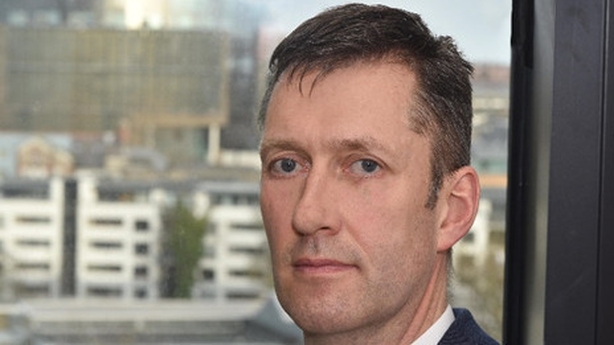
The Assistant Commissioner for the North Western Region Cliona Richardson, currently responsible for the border area, spent much of her career in the Criminal Assets Bureau, Europol, the National Criminal Intelligence Unit and Liaison and Protection which protects and relocates witness who give evidence against criminal gangs and terrorist organisations.
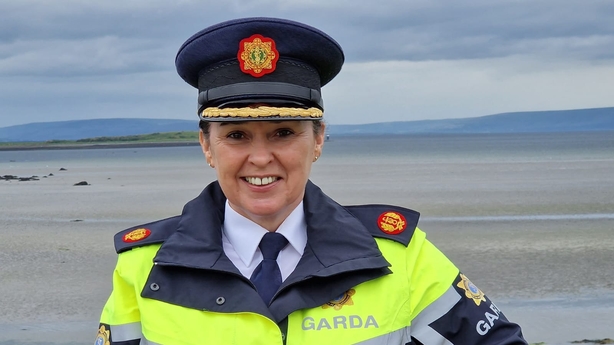
The current Assistant Commissioner in Crime and the Security and Intelligence Service Michael McElgunn, recently warned of the renewed threat from Islamic State, a resurgent threat from Russia and the dangers posed to democracy by the rise of the far right.
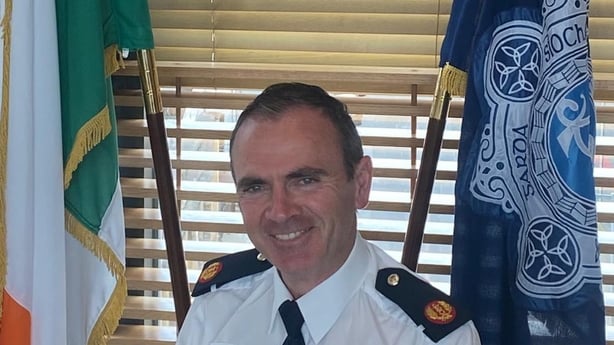
The members of the Garda’s current senior leadership team all appear to have the experience and qualifications to apply for the position. All have chosen not to do so. Why?
Pensions and Penalties
At least two retired senior Garda officers got an unpleasant surprise when they recently retired. They were presented with tax bills of over €100,000 because of changes in the tax laws almost ten years ago.
The offer by Revenue of a five-year payment period to settle the bill has done little to soften the financial blow.
In 2014, the Government introduced new tax regulations which required public servants retiring with funds of over €2million to pay tax, including on their lump sum payments, which were previously tax free.
This has hit senior gardaí particularly hard because they are required to retire at 60, ten years before other public servants.
Gardaí along with prison officers receive a full pension after 30 years’ service, in recognition of the particularly hazardous nature of their work.
Any additional payments made after that comprise, gardaí say, of ‘dead money’. If they continue to work after 30 years, their additional contributions make no difference to the already secured pension.
"A financial manager would say you are insane to stay on," the former Assistant Garda Commissioner Pat Leahy says.
"You are paying to be there. You are working for half the money. You can’t benefit from those payments. The fact that people do, reflects the vocational nature of the job, the commitment, the dedication."
The officers in their early to mid-50’s who continued to work after 30 years have, up to now, accepted this. For a time, many continued to seek promotion.
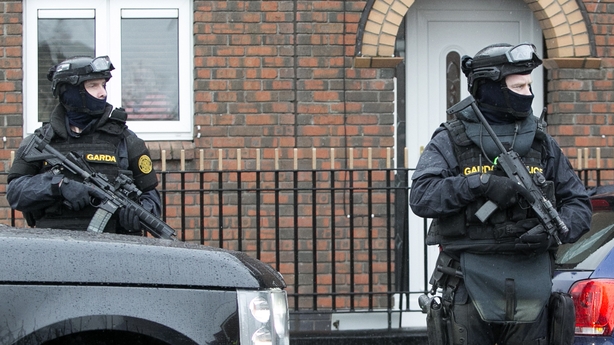
However, they now say that this is no longer financially viable because the additional payments they continue to make into their pension funds will actually disimprove their earnings upon retirement by exposing them to a higher tax bill.
They are required to continue to contribute to a pension scheme which has the opposite effect of reducing their pension on retirement. The more money they pay, the higher the figure will go over the threshold and consequently, the higher the tax bill will be when they retire.
"Why apply for promotion and a higher paid job when it will cost you more in the long run?’ they ask, "In fact, why remain working at all?"
They also say the reality is they will never receive back in retirement anything near the calculated amount of their pension fund because it is well established that police officers worldwide have a significantly lower life expectancy.
In the US the average life span of a police officer is 66. There is no comparable figure for gardaí here.
The Government has exclusive access to 60 years of retired Garda pension data. The GRA called six years ago for that information to be analysed and published, but that hasn’t happened.
The issue has led to senior Garda officers not only not considering promotion in the job and not applying for positions like Deputy Garda Commissioner, but actively considering leaving the job altogether.
The issue applies only to long serving gardaí who have reached a certain rank and pay scale and will continue to apply to an increasing number of senior officers in the future.
It doesn’t apply to officers from other police services, such as the PSNI who have or will join the gardaí. They will not serve enough time to accumulate such a taxable pension fund and already have pensions from their previous employment.
Confidence in An Garda Síochána
Observers warn that An Garda Síochána could lose many of its most experienced and senior officers and with them the associated cumulative investigative and corporate memory.
This has real implications for the investigation of serious and organised crime here, and the ability of law enforcement to prosecute and bring before the courts the country’s most serious and dangerous criminals along with the evidence to imprison them.
Organised crime and subversive organisations such as the IRA threaten the security of the state. In such circumstances the Government and the public looks to the gardaí and the Criminal Justice system for protection.
There are notable examples over the past 30 years where the machinery of the state has not been found wanting.
The gang responsible for the murder of the journalist Veronica Guerin in 1996 was dismantled. Its leaders and key figures, John Gilligan, Brian Meehan, Charlie Bowden and Patrick ‘Eugene’ Holland were arrested, convicted and jailed.
Meehan remains in prison today.
The feuding Limerick gangs, the McCarthy Dundons and the Keane Collopy’s, responsible for the murders of at least 19 people over a decade, were broken up.
The key figures, the Dundon brothers, Nathan Killeen and David "frog eyes" Stanners amongst others were jailed for life.
Most recently the ability of the gardaí to tackle transnational organised crime at home and abroad has been evident in the investigations into the ongoing Hutch Kinahan feud which has so far cost 18 lives.
The leader of the Kinahan Organised Crime Group was first caught drug dealing in 1986 by an undercover Garda who went on to become the head of the Garda’s Drugs and Organised Crime Bureau.
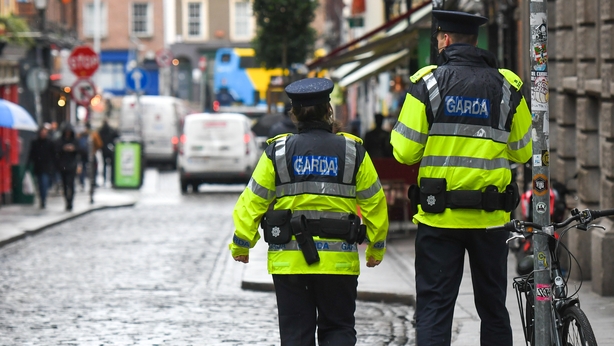
Michael O’ Sullivan, who retired to lead the European drugs shipments tracking agency MAOC(N) in Lisbon knew Christy Kinahan Senior when he first started selling heroin in Dublin.
He knew Kinahan’s background, his associates, his operation and his way of thinking. That accumulated criminal intelligence was subsequently fed into the investigations into the Hutch/Kinahan feud murders thirty years later, which O’ Sullivan was directly involved in as a supervising officer.
The former Assistant Commissioner points out that An Garda Síochána is unique in that the majority of its senior officers began like all the other gardaí, walking the beat, before progressing on to the senior ranks. They now have that corporate memory on Irish crime and criminals.
"You’re growing in the Guards," he says, "it’s not a job, it’s a career. The experience you get, the skillset that you learn as you progress through the ranks, you cannot train someone in that overnight. The job of Deputy Commissioner is too important. You can’t just come in with a pile of degrees and do that job.
"If a Deputy Commissioner doesn’t know about the murders, the gangs and the major criminals here and hasn’t come across them throughout their career, he or she can be bluffed. They don’t ask the senior investigating officers the right questions; ‘Did you do this? Did you do that?’ "They’re not watching the focus, the direction of major investigations."
He stresses the importance of this corporate crime knowledge for the people in charge.
"I’m talking about people who know what they’re doing. Operational experience is essential and a lot of that is walking out the door," he says.
The possibility that a former police officer from another country would have direct and continuous access to operational and real time Garda information is also a cause of concern for many serving and former Garda officers who have worked in this highly secretive area. They say it has implications for state security.
"The Commissioner is a little bit removed from all that," one said, "but the significance of having an outsider in the post of Deputy Commissioner is greater in the gardaí which is responsible for the state’s security as well as its policing service. They have access to all the intelligence."
Crisis of Confidence
Disillusionment among the rank and file has manifested itself in a personalised manner with over 9,000 gardaí voting no confidence in the Garda Commissioner Drew Harris.
Now there is also some disillusionment creeping in amongst the senior management in An Garda Síochána. There is a growing sense among long serving senior officers of ‘after all we’ve done, why bother?’
The Government acknowledges the perils of an economy with full employment and multiple alternative opportunities for skilled and talented public servants.
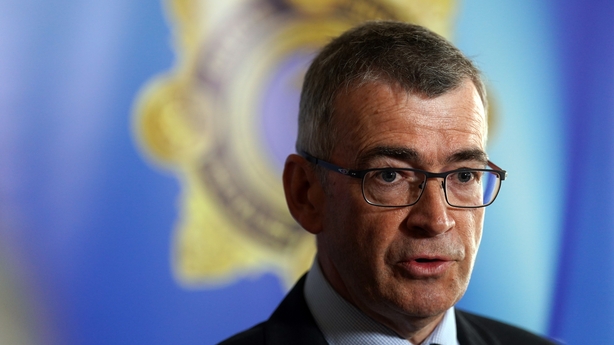
The difficulties this poses are already evident in the Defence Forces which has been so filleted of its highly trained specialists, it can only put two of its eight ships to sea.
Senior gardaí can walk out with a full pension after 30 years and walk into an equally well-paid job with better benefits, conditions and hours.
A Garda inspector who was operational at all hours, day and night, who recently retired is today working in a 9-to-5 office job with less stress and more money.
A similar problem was identified in the UK a number of years ago when consultants began to leave the NHS. It introduced Lifetime Allowance (LTA) legislation in 2004 which meant people were charged tax on their pension funds of just over £1million.
The UK Government announced in the budget earlier this year that it’s now going to abolish the LTA from the 6 April next year.
The Association of Chief Superintendents has already written to the Garda Commissioner and the Minister for Justice outlining the operational risks to the Garda organisation associated with the loss of uniquely qualified personnel, including those working in crime, security and intelligence.
The Policing Authority says it was tasked by the Government with nominating a candidate for Deputy Commissioner and asked the Public Appointments Service (PAS) to undertake the recruitment process. It said the PAS decided to extend the closing date for applications and it welcomes that.
The Department of Justice declined to comment this weekend.
The danger now, however, is of a brain drain at management level in An Garda Síochána and the loss of the most senior and capable officers as a result of the unintended consequences of a decade old change in the law.






